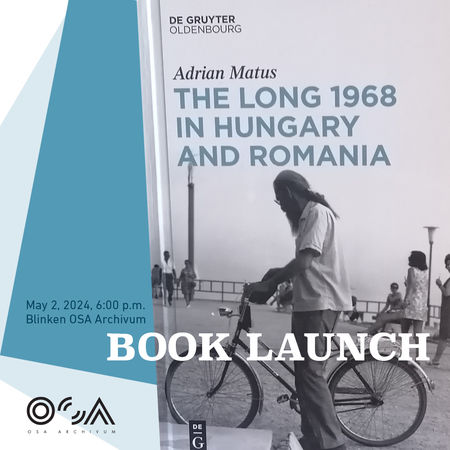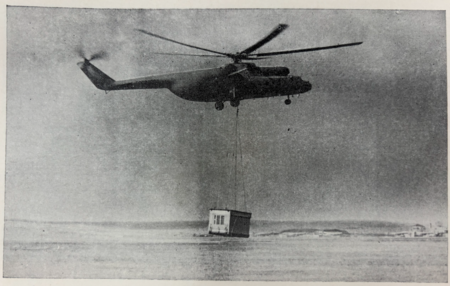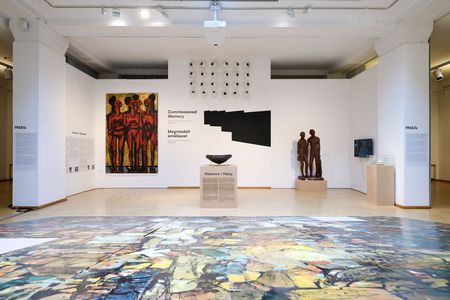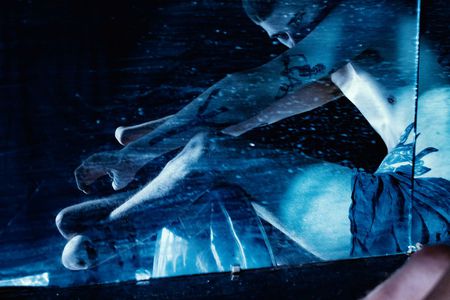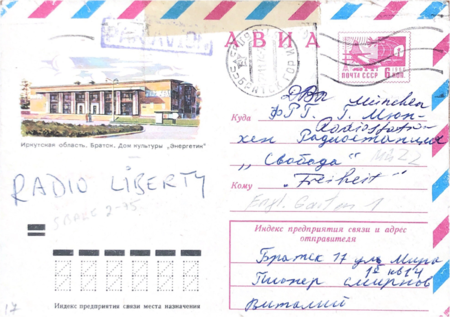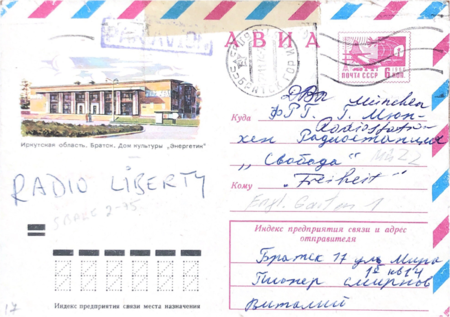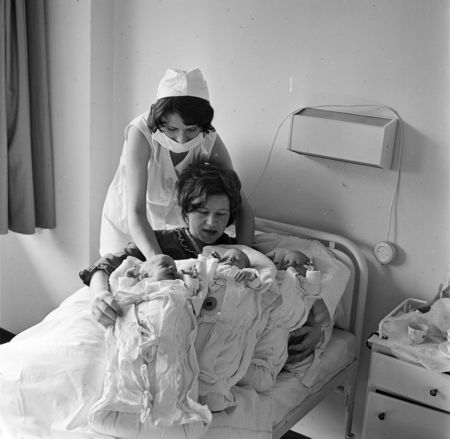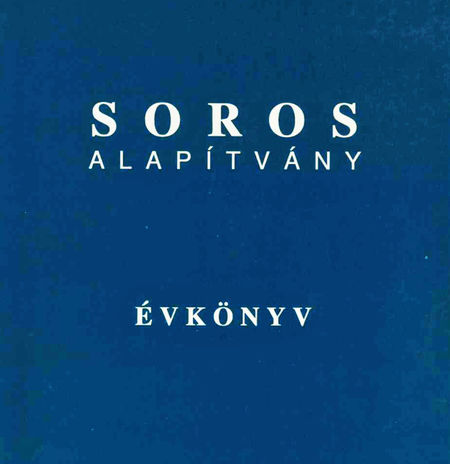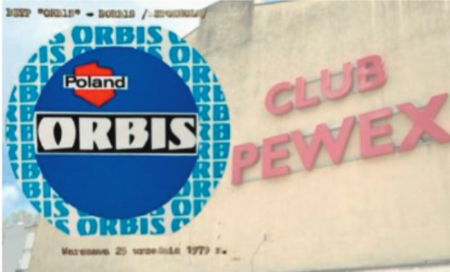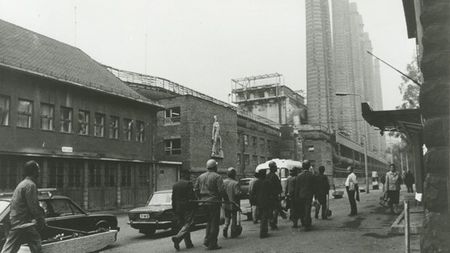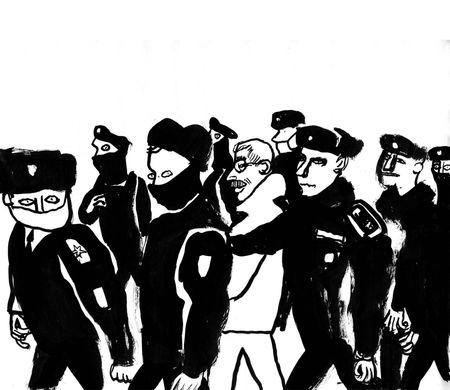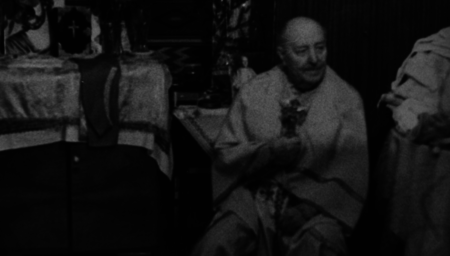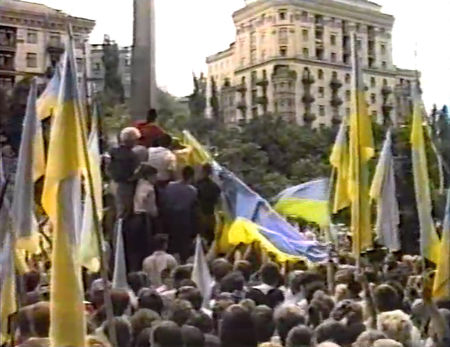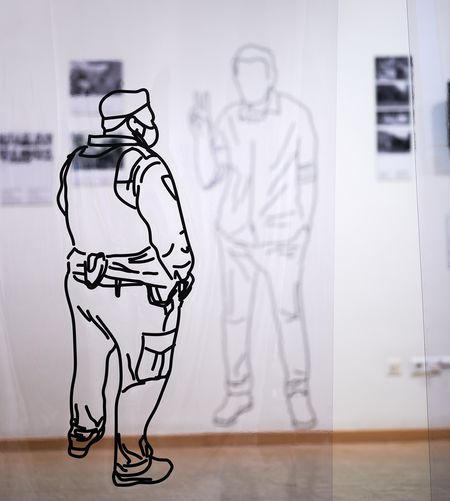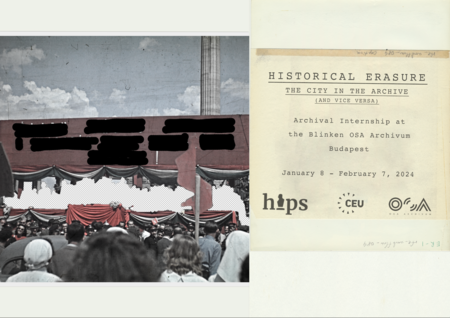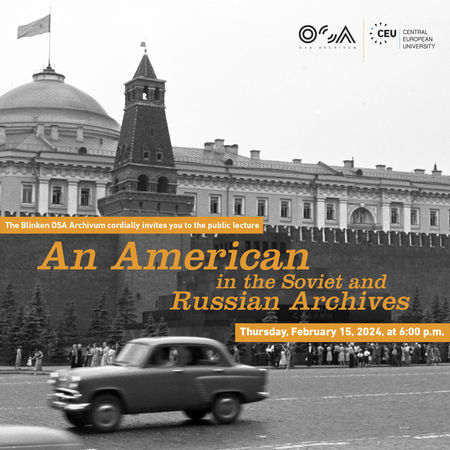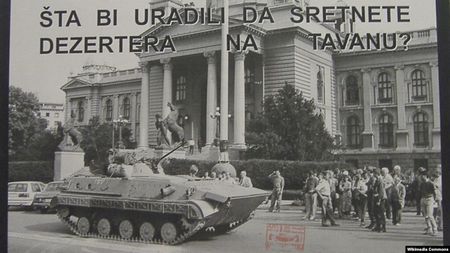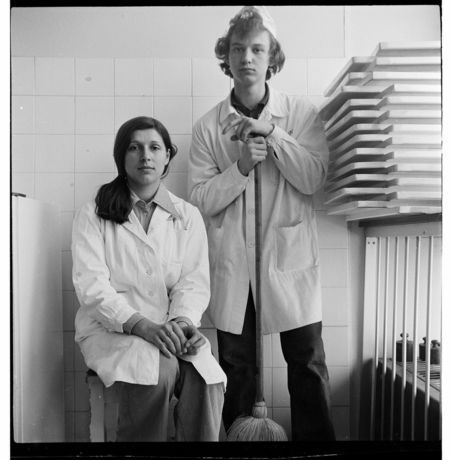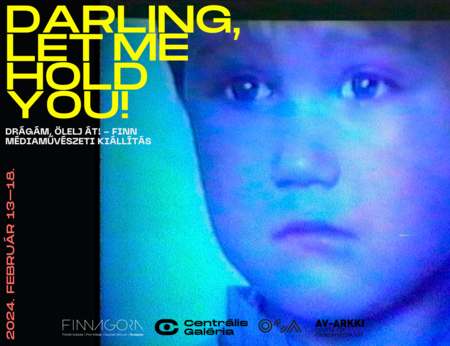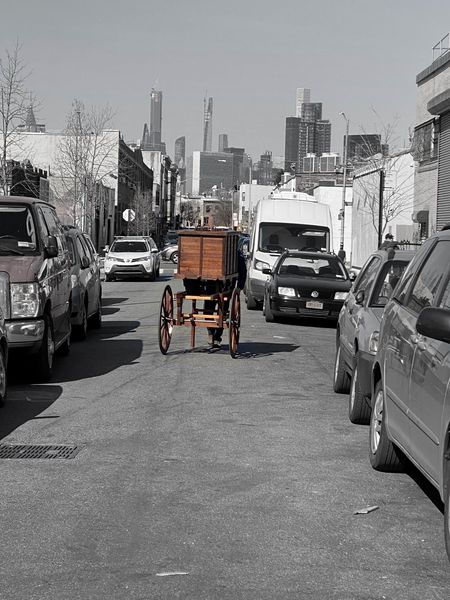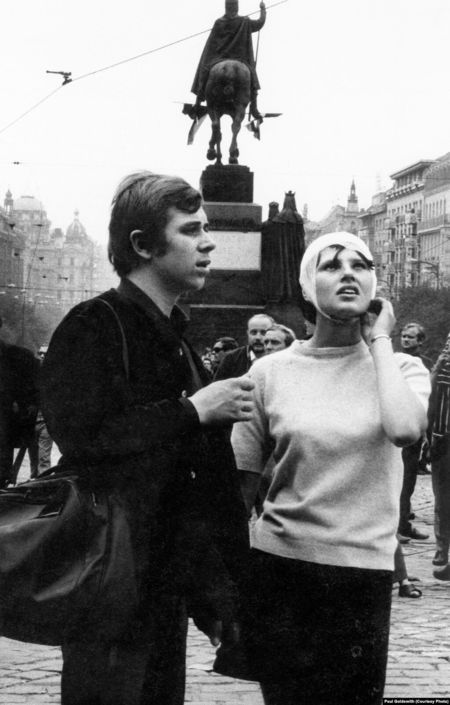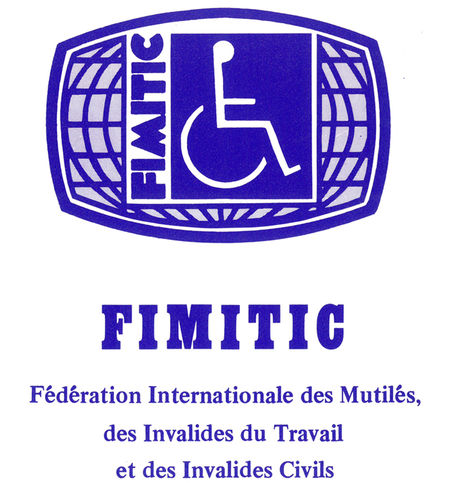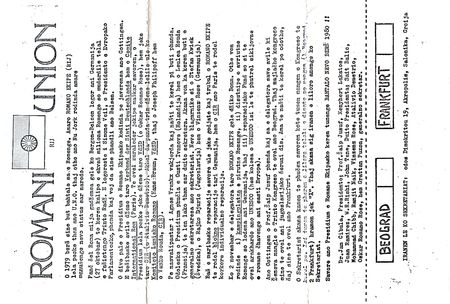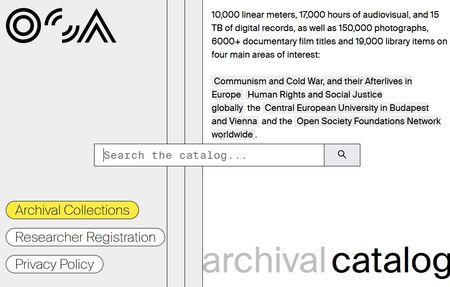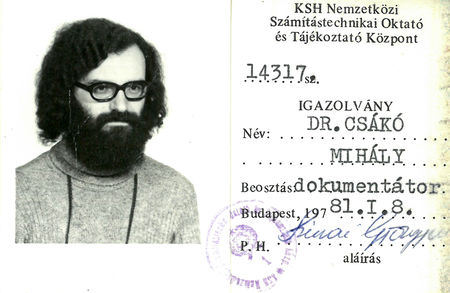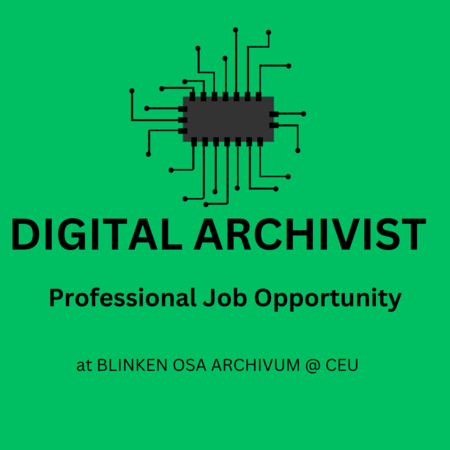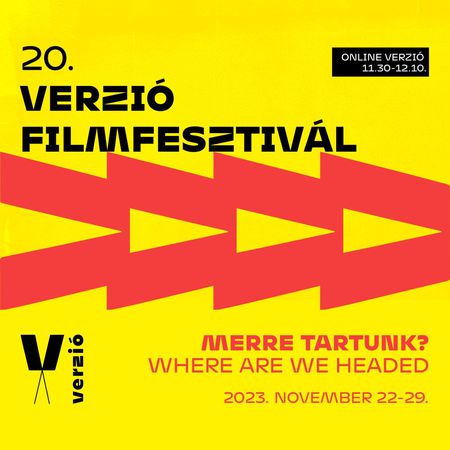Vera and Donald Blinken Open Society Archives
Press Room
Posted: 23/April/2024
BOOK LAUNCH
May 2, 2024, 6:00 p.m.
Blinken OSA Archivum (1051 Budapest, Arany János u. 32.), Research Room
Adrian-George Matus's book, The Long 1968 in Hungary and Romania, examines the history of the sixty-eighters from both countries between 1956 and 1975. It seeks to address two main topics: the impact of “the long 1968” on protest history, and the distinction between protest, opposition, and leisure activities among the youth. Through comparative and oral history methodology, the book fills archival gaps and elucidates how political and social events shaped individuals’ memories.
Posted: 22/April/2024
We are happy to announce the next presentation of the Visegrad Scholarship at OSA. Join the event in the Archivum, or online! The presentation will be held at 11:15 AM on Tuesday, April 30, in the Meeting Room of the Blinken OSA Archivum, and online.
Posted: 17/April/2024
Following last year’s exhibition, Commissioned Memory: Hungarian Exhibitions in Auschwitz, 1960/1965 at Blinken OSA Archivum’s Galeria Centralis, its virtual version was released on 16 April 2024, on the occasion of the Memorial Day of the Hungarian Victims of the Holocaust:
https://commissionedmemory.osaarchivum.org/
Posted: 08/April/2024
Marta SYRKO: Sculpture Soldiers
photo exhibition
April 18–May 26, 2024
Blinken OSA Archivum, Galeria Centralis
Ukrainian photographer Marta Syrko’s series Soldier Sculptures is an artistic record of Russia’s full-scale invasion of Ukraine. Through sensitive depictions of vulnerable bodies and the human stories behind the wounds, she sheds light on the resilience and strength of soldiers, while encouraging
viewers to reflect on their own perceptions of loss and how it
Posted: 03/April/2024
Blinken OSA Archivum and Verzio Film Festival present 5 outstanding documentaries - the most popular films of the previous programs.
Do not miss this rare opportunity to watch some of the best documentary features for FREE!
Films are screened in original language with English subtitles.
April 10- May 16 2024 / 6 PM
WHERE: Blinken OSA Archivum
Budapest V, Arany János u. 32.
Seating is first-come first-served basis. Come on time! / ADMISSION FREE / REGISTRATION
Posted: 27/March/2024
We are happy to announce the next presentation of the Visegrad Scholarship at OSA. Join the event in the Archivum, or online following the link below! The presentation will be held at 14:00 CET on Tuesday, April 2, in the Meeting Room of the Blinken OSA Archivum, and online.
The link to the Zoom meeting is: https://ceu-edu.zoom.us/j/98659199472?pwd=L1VFU2lRaDY0cXNJRUFoTFhweTZrZz09
Meeting ID: 986 5919 9472
Passcode: 281692
Posted: 27/March/2024
We are happy to announce the next presentation of the Visegrad Scholarship at OSA. Join the event in the Archivum, or online following the link below! The presentation will be held at 14:00 CET on Tuesday, April 2, in the Meeting Room of the Blinken OSA Archivum, and online.
The link to the Zoom meeting is: https://ceu-edu.zoom.us/j/98659199472?pwd=L1VFU2lRaDY0cXNJRUFoTFhweTZrZz09
Meeting ID: 986 5919 9472
Passcode: 281692
Posted: 25/March/2024
We are happy to announce the next presentations of the Visegrad Scholarship at OSA. Join the event in the Archivum, or online following the link below!
The presentations will be held at 14:00 CET on Tuesday, March 26, in the Meeting Room of the Blinken OSA Archivum, and online.
Passcode: 262588
Posted: 21/March/2024
Now available in our online catalog, the Soros Foundation–Hungary yearbooks detail the grants, awarded between 1984 and 2003 in Hungary, amounting to more than 170 billion forints in today’s value. The yearbooks provide the most authentic publicly available source for researching the indispensable activities carried out by the Foundation during and after the regime change in Hungary. Funding, networking, and knowledge sharing filled gaps in fields such as education, healthcare, social care, culture, media, and advocacy. The 19 volumes have been digitized and OCR-ed, allowing both browsing and searching the documents in the Archivum’s online catalog.
Posted: 14/March/2024
We are happy to announce the next presentations of the Visegrad Scholarship at OSA. Join the event in the Archivum, or online! The presentations will be held at 11:00 CET on Thursday, March 21, in the Meeting Room of the Blinken OSA Archivum, and online.
Posted: 07/March/2024
Almási Marathon - Tamás Almási: Ózd-Series
A two-day screening series and audience meeting in Hungarian.
As a tribute to the Almási legacy, the eight-part Ózd series will be screened on March 14-15, 2024, never shown all at once.
The program starts on Thursday, March 14, 2024, at 4:00 p.m. On Friday, March 15, 2024, we will continue at 10 am, and at 4:20 p.m. there will be a discussion with the director Tamás Almási and Lóránt Stőrh.
Posted: 28/February/2024
We, members of the Blinken OSA Archivum, express our admiration for Oleg Orlov; for his many years of struggle for human rights, and for his fearlessness in front of the regime. The Blinken OSA Archivum, a long-time ally of Memorial and a repository of documents related to the histories and aftermaths of grave human rights violations, endorses the statement issued by 33 human rights organizations, and condemns the sentence.
Posted: 21/February/2024
We are happy to announce the next presentations of the Visegrad Scholarship at OSA. Join the event in the Archivum, or online! The presentations will be held at 14:00 PM on Tuesdady, February 27, in the Meeting Room of the Blinken OSA Archivum, and online.
Posted: 19/February/2024
On the 10th anniversary of the annexation of Crimea and the second anniversary of Russia’s full-scale war of aggression it led to against Ukraine, the Blinken OSA Archivum raises awareness of the Ukrainian people’s successful struggle for independence in the late 1980s and early 1990s. The new Curated Collection titled Winning Freedom: Ukraine, 1989–1991, published today, reconstructs three crucial years in Ukraine’s transition process based on archival documents from the Archivum’s holdings.
Posted: 16/February/2024
“Alexei Navalny (1976–2024) Russian dissident politician and anti-corruption activist. He came into international prominence for organizing demonstrations against President Putin and his government, running for office and advocating anti-corruption reforms.”
Posted: 13/February/2024
What do the following have in common?
an audio walking tour and exhibition about the prewar nightlife in the Jewish District of Budapest
an interactive online novel set in 1956, during the revolution in Hungary
a poetic documentary film about the lives of Socialist monuments in Memento Park
an online exhibition amending the controversial museum House of Terror concerning the history of the transition from Horthy’s regime to the Arrow Cross rule between 1920 and 1944
Posted: 08/February/2024
PUBLIC LECTURE
An American in the Soviet and Russian Archives
by Alfred J. Rieber, University Emeritus Professor at Central European University (CEU)
When: Thursday, February 15, 2024, at 6:00 p.m.
Where: Blinken OSA Archivum, Research Room, 1051 Budapest, Arany J. u. 32.
Online: https://ceu-edu.zoom.us/j/95634973722?pwd=ZmRZc2MwVmFqcUxpYXlMR2dSTlFydz09
Posted: 07/February/2024
We are happy to announce the next presentation of the Visegrad Scholarship at OSA. Join the event in the Archivum, or online by following the link below!
The presentation will be held at 2:00 p.m. on Tuesday, February 13, in the Meeting Room of the Blinken OSA Archivum, and online.
The Zoom link of the meeting is: https://ceu-edu.zoom.us/j/92097409782?pwd=ci9LUG4rcXRyZHFKSHlrQ3pQakpWUT09
The silence of saying no. Narrating desertion in the Yugoslav wars.
by Dr. Milica Popović, Sciences Po CERI
Posted: 01/February/2024
On January 29, the Blinken OSA Archivum organized a workshop at its Budapest headquarters with sociologists and other social scientists—teachers, students, and researchers—exploring the possibilities of using the Mihály Csákó Personal Papers in education and research. Participants included senior staff and students from the Eötvös Loránd University’s Faculty of Social Sciences and the Centre for Social Sciences. The workshop was moderated by Iván Székely, Senior Research Fellow and Counsellor at the Blinken OSA Archivum.
Posted: 29/January/2024
The Finnish Institute in Budapest FinnAgora and Blinken OSA Archivum present an audiovisual art exhibition: Darling, Let Me Hold You!
The exhibition is organized as part of the Finnish Film Days, Finn Filmnapok, and presents audiovisual art by six Finnish artists.
The theme of the exhibition is human connection.
Posted: 03/January/2024
On the 80th anniversary of the Hungarian Shoah, two related events will take place at the CEU Nádor Street building (entrance: 1051 Budapest, Nádor utca 15) on Wednesday, January 10, 2024.
At 4 p.m., the working group of historians of the CEU Democracy Institute will present Viktor Karády and István Kemény’s book Zsidóság a magyar nemzetépítésben a numerus clausus előtt és azután [Jewishness in Hungarian nation-building before and after the Numerus Clausus].
At 6 p.m., András Böröcz’s kinetic sculpture Noisemaker, commissioned and supported by the Polgár Foundation, will be presented by art historian András Rényi in the presence of the artist. (A regular exhibitor in Budapest, András Böröcz has been living in Brooklyn since 1984.
Further information on the future programs of the Noisemaker will be available at the following link: https://www.facebook.com/2bgaleria/?locale=hu_HU
The event is free, but registration is required: https://forms.office.com/e/t7u1xP80JR
Venue – Book Launch: 1051 Budapest, Nádor u. 15, Auditorium B.
Venue – Exhibition opening: 1051 Budapest, Nádor u. 15, Atrium
Posted: 02/January/2024
In Visible Presence: Soviet Afterlives in Family Photos (MIT Press, 2023)
by Oksana Sarkisova (CEU) and Olga Shevchenko (Williams College)
An absorbing exploration of Soviet-era family photographs that demonstrates the singular power of the photographic image to command attention, resist closure, and complicate the meaning of the past.
Date/Time: January 18, 2024, 6:00 p.m.
Venue: Blinken OSA, Arany Janos u. 31, Budapest 1051
Moderator and discussant: Róza Tekla Szilágyi, Director of Eidolon Center for Everyday Photography.
Organizers: Blinken OSA Archivum and Institute for Advanced Studies at CEU
Posted: 11/December/2023
We are happy to announce the next presentations of the Visegrad Scholarship at OSA. Join the event in the Archivum, or online! The presentations will be held at 11:00 on Thursday, December 13, in the Meeting Room of the Blinken OSA Archivum, and online.
Posted: 10/December/2023
December 10 is Human Rights Day, observing this year the 75th anniversary of the Universal Declaration of Human Rights. This milestone celebration comesis just a week after the UN’s International Day of Persons with Disabilities on December 3. On this double occasion, we are happy to announce that the records of the International Federation of Persons with Physical Disability have been included to Blinken OSA Archivum’s holdings, marking a significant expansion in our collection focus.
Posted: 30/November/2023
We are happy to announce the next presentation of the Visegrad Scholarship at OSA. Join the event in the Archivum, or online! The presentations will be held at 11 AM on Thursday, December 7, in the Meeting Room of the Blinken OSA Archivum, and online.
Posted: 19/November/2023
Budapest is celebrating the 150th anniversary of its unification today. The Blinken OSA Archivum, a unit of CEU, has been operating in Budapest since 1995. During this time, our colleagues launched projects like Budapest100, Fortepan, or the Yellow Star Houses website. For the capital’s 150th birthday, we have prepared several gifts. Today, we unveil our renewed online catalog, also including two new, Budapest-related collections: the archive of Budapest Week, a weekly magazine capturing the vibrant life of Budapest in the 1990s, and István Bartók’s street photographs of Budapest in the 2000s. Next week, the Verzió Film Festival, founded 20 years ago by the Archivum staff, devotes a special section to documentaries about the city.
Posted: 19/November/2023
Mihály Csákó would have celebrated his 82nd birthday today, on November 19. We are pleased to announce that, with archival processing done, the Mihály Csákó Personal Papers are now accessible in the Research Room, and its detailed catalogue entry can be browsed online! The rich collection revolves around topics like sociology of education, research on apprentices, democratic civic education, computerization in schools, trade union movements and, at the same time, Csákó’s democratic opposition activities and teaching work.
Posted: 16/November/2023
The Vera and Donald Blinken Open Society Archives (Blinken OSA Archivum) at Central European University (CEU) based primarily in Budapest, but with teaching tasks in Vienna, Austria invites applications for the Digital Archivist position.
Blinken OSA Archivum is part of Central European University (www.ceu.edu), one of the most multinational graduate institutions in Europe, engaged primarily in the humanities and social sciences. The Archivum is a complex institution of memory that supports scholarship, is engaged in research, is the initiator of high visibility public programs, and manages the Archives and Evidentiary Practices specialization at the History and Legal Studies Departments at CEU. The Archivum is also an “archive of last resort”, the archive of (politically and otherwise) endangered collections.
Blinken OSA Archivum hopes to attract a unique intellectual who is ready to experiment and to take calculated professional and intellectual challenges; who is passionate about new archival and library theories, technologies, trends in digital media, digital humanities, and open access; and who is highly knowledgeable about emerging IT solutions.
Posted: 15/November/2023
Why do violent and sometimes deadly initiation rituals persist in the Belarussian army? What did the Taliban do with $7 billion worth of American military equipment? Who owns the ocean depths? What makes someone male or female?
These are some of the questions explored at the Verzió Human Rights Documentary Film Festival, held from 22–29 November, in Budapest and six other cities across Hungary.
Posted: 12/November/2023
Blinken OSA Archivum, Galeria Centralis
September 14 – December 3, 2023
Exhibition opening: September 14, Thursday, 6:00 p.m.
(The event is held in Hungarian.)
Opening remarks by:
István Rév, Director, Blinken OSA Archivum
Eszter Susán, Program Manager, Jewish Life Program, Tom Lantos Institute
Opening speech by:
András Kovács, Professor, CEU Jewish Studies Program
Curator: Daniel Véri
Graphic designer: Sarolta Ágnes Erdélyi, Hajnalka Illés
Exhibiting artists: Tibor Barabás, Gyula Hincz, György Jovánovics, János Kass, Béla Kondor, György Konecsni, Gyula Konfár, József Péri, Endre Szász


